Reese Timothy
Attentive Continuous Generative Self-training for Unsupervised Domain Adaptive Medical Image Translation
May 23, 2023
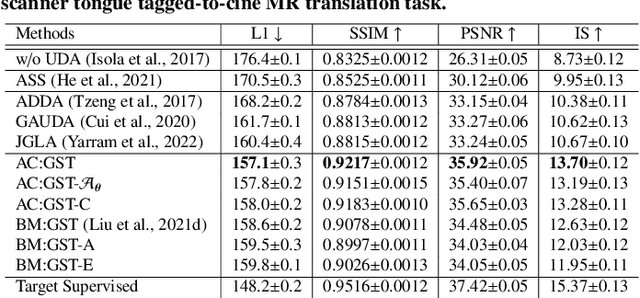
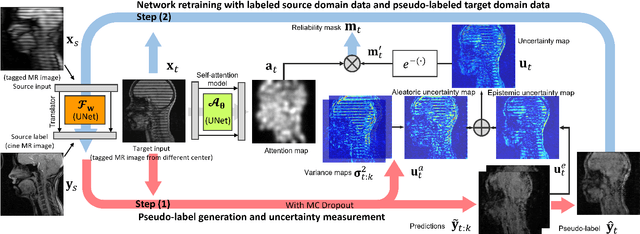

Abstract:Self-training is an important class of unsupervised domain adaptation (UDA) approaches that are used to mitigate the problem of domain shift, when applying knowledge learned from a labeled source domain to unlabeled and heterogeneous target domains. While self-training-based UDA has shown considerable promise on discriminative tasks, including classification and segmentation, through reliable pseudo-label filtering based on the maximum softmax probability, there is a paucity of prior work on self-training-based UDA for generative tasks, including image modality translation. To fill this gap, in this work, we seek to develop a generative self-training (GST) framework for domain adaptive image translation with continuous value prediction and regression objectives. Specifically, we quantify both aleatoric and epistemic uncertainties within our GST using variational Bayes learning to measure the reliability of synthesized data. We also introduce a self-attention scheme that de-emphasizes the background region to prevent it from dominating the training process. The adaptation is then carried out by an alternating optimization scheme with target domain supervision that focuses attention on the regions with reliable pseudo-labels. We evaluated our framework on two cross-scanner/center, inter-subject translation tasks, including tagged-to-cine magnetic resonance (MR) image translation and T1-weighted MR-to-fractional anisotropy translation. Extensive validations with unpaired target domain data showed that our GST yielded superior synthesis performance in comparison to adversarial training UDA methods.
Generative Self-training for Cross-domain Unsupervised Tagged-to-Cine MRI Synthesis
Jun 23, 2021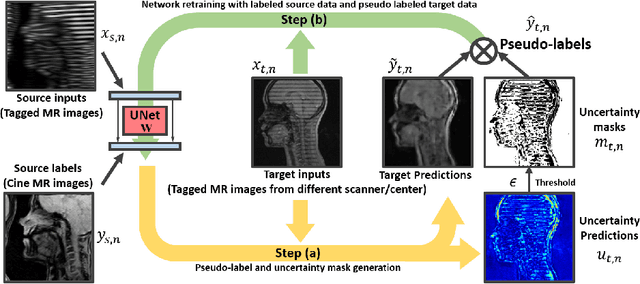

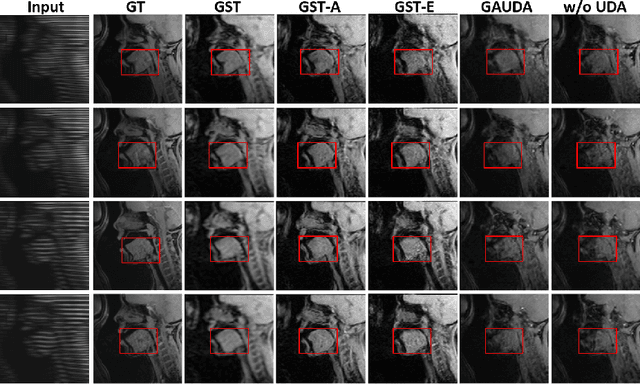
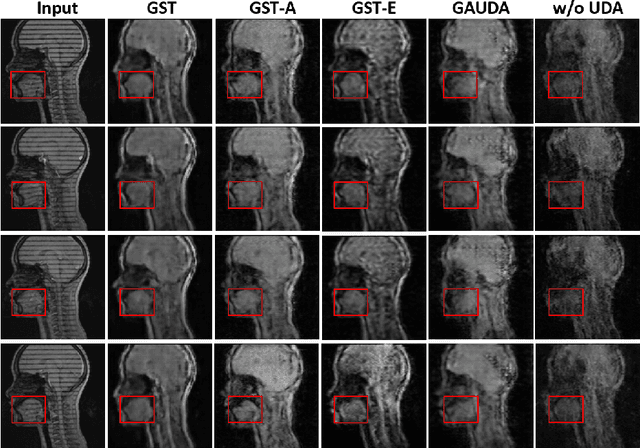
Abstract:Self-training based unsupervised domain adaptation (UDA) has shown great potential to address the problem of domain shift, when applying a trained deep learning model in a source domain to unlabeled target domains. However, while the self-training UDA has demonstrated its effectiveness on discriminative tasks, such as classification and segmentation, via the reliable pseudo-label selection based on the softmax discrete histogram, the self-training UDA for generative tasks, such as image synthesis, is not fully investigated. In this work, we propose a novel generative self-training (GST) UDA framework with continuous value prediction and regression objective for cross-domain image synthesis. Specifically, we propose to filter the pseudo-label with an uncertainty mask, and quantify the predictive confidence of generated images with practical variational Bayes learning. The fast test-time adaptation is achieved by a round-based alternative optimization scheme. We validated our framework on the tagged-to-cine magnetic resonance imaging (MRI) synthesis problem, where datasets in the source and target domains were acquired from different scanners or centers. Extensive validations were carried out to verify our framework against popular adversarial training UDA methods. Results show that our GST, with tagged MRI of test subjects in new target domains, improved the synthesis quality by a large margin, compared with the adversarial training UDA methods.
 Add to Chrome
Add to Chrome Add to Firefox
Add to Firefox Add to Edge
Add to Edge